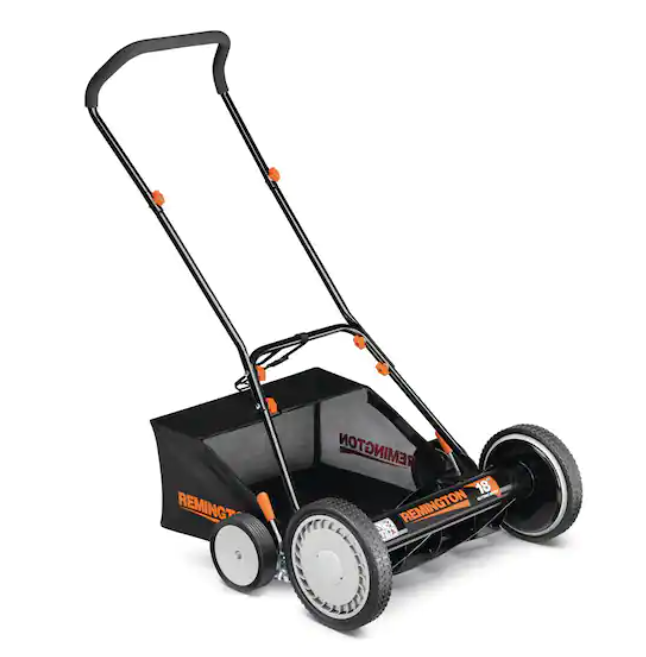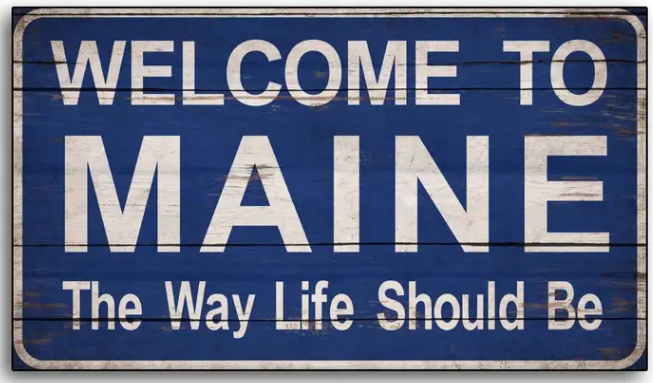
NEWS: Polls show the economy – particularly inflation – is the top concern for Americans.
WHAT IT MEANS TO YOU: You need realistic ways to cut expenses and boost your income that don’t assume you get a Starbucks coffee every day (if you do, though, cut down).
Last month we looked at budgeting. If you didn’t read that column, check it out. Having a working budget is the top way to increase your income and cut expenses. It’s not sexy, it’s not fun, but there you have it. In fact, most ways to increase your income and cut expenses are not sexy or fun.
I have a cousin who used to golf regularly with a very wealthy man, right here in the Manchester area. The wealthy guy would pick up his broken tees so he could tape them back together and re-use them. My cousin asked him why he did that. The guy was very wealthy after all and could afford a 99-cent bag of tees (this was in the 1990s).
The guy responded, “How do you think I got so rich?”
That’s a true story!
The point isn’t so much that every 99 cents saved is 99 cents earned, but rather a lesson about waste, reuse and being mindful about what you need to spend money on and what you don’t.
Here’s a free tip: The best way to make money is to save money. Sorry, but it’s the truth. The tips I’m offering will probably look familiar – there aren’t really any new ways to save and make money. But this is a chance to be realistic and look at your situation through this lens. Everyone’s finances and homelife are different. So are their abilities, skill at addressing challenges, and more. Consider these tips and see how they will work for you. Don’t dismiss anything out of hand. But most also come with qualifications. In general, always weigh time and what something will cost you against money you will gain.
1) Take a serious look at daily expenses. I already talked about this in the budgeting column last month, but it’s worth repeating. Everyone’s daily spending can be cut. The best way to figure it out is go through your bank statement if you use a debit card or phone app and see where the discretionary spending is. (If you are using a credit card for daily spending, stop. Right now. More on this next). If you use cash, track your spending – every single cent – for a month.
It’s easy to rationalize why you “need” something that you really don’t. It’s easy to buy something new rather than fix something old, live with something that still works but not the way you want it to or just do without it. We’re talking anything from a toaster or pair of shoes to the latest iPhone. Weigh spending money on something new against having the money itself.
This includes cutting the cable cord, which I addressed in August’s column. You can likely pay less to watch TV if you get rid of cable. (I explain more in the column). You can cut way down on streaming, while you’re at it, too.

Channel your inner pioneer by turning down the thermostat and not using the AC. Heating and cooling bills can take a huge bite out of your monthly income. If you have kids, make a game out seeing how many kilowatt hours you can cut daily. Many electric companies have apps and alerts that help you track your home’s kilowatt use. Turn off outside lights at night – get motion lights if you have security concerns. Unplug your chargers. Have one “unplugged” day a week where people read books and play board games instead of watching TV or playing video games. Do you have more than one TV running on in the house at once? Maybe it’s time to go back to the 1970s and watch TV together in one room.
Keep showers short, wash clothes in cold or tap-temperature water, cut down on clothes worn and dishes dirtied so you can cut down on running the washer, dryer and dishwasher.
You may rationalize these things only save pennies, but the pennies add up.
2) Stop using credit cards. Easier said than done, I know. Especially if you’re living paycheck to paycheck. To get yourself in the mood, look at your last credit card statement (if you don’t get one in the mail, it’s on the card’s online site). Find the place that shows how much you’ll pay and how long it will take if you only make minimum payments. For added fun, be sure to look at what fees and interest you paid just for the month. It’s a spiral that just keeps costing you money.

If you just can’t do it and have no money because your credit cards are too high, consider calling a nonprofit debt management agency. The National Foundation for Credit Counseling lists accredited ones. A credit counselor will talk to you, for free, review your finances, discuss a budget and lay out debt management options. (In a future column I’ll talk about the difference between nonprofit debt management, which is better for your future finances, and debt settlement, which has issues).
3) Drive as little as possible. Another easier said than done tip, particularly if you live where there’s no public transportation. But if you live within walking distance of the store (even a mile or more), try walking. Get one of those little pull-carts. I know, not great in the snow and you’ll look like a dork. Still, any time you can save gas money by walking, you should. It’s better for your health, too. Consider taking public transportation if if it exists where you live. If you drive, consolidate errands and trips as much as possible. Shop smartly so that you can go to the store once a week, not every other day (this will also save you grocery money).

Your kids can also walk. Their chance of being abducted by a stranger are less than you winning Megabucks. Their chances of health problems related to lack of exercise, on the other hand, are huge. You can even walk with them. If you do drive to pick up your kids, turn off the engine while you’re waiting. Even if it’s “too hot” or “too cold” out. It’s OK to be uncomfortable. You may rationalize that the gas you use as the car idles isn’t costing that much. But it IS costing something, and damaging the environment as well. Remember, it’s not about one big chunk of savings, it’s about chipping away in little bits and every 99 cent bag of golf tees counts.
Speaking of gas, consider mowing the lawn less (better for the lawn, too) or getting an old-fashioned push mower. Get rid of the leaf blower and use a rake. Yes, gas and electricity are expensive. Why use them when you don’t have to?
4) Rewards and loyalty programs. Shop at stores with rewards programs. Saving money and using coupons no longer means sitting at the kitchen table with scissors. Most programs have an app, and they’re all easy to join and use. But be money smart. Don’t use coupons to buy things you’d never buy if you didn’t have a coupon. Use store brands, whether you get rewards for them or not. They’re cheaper, and not a lot different from the commercial brand. The savings can add up both in the money back and buying cheaper items. Gas rewards cards often also work in the associated convenience store.
 5) Cross state lines to work. New Hampshire’s minimum wage is $7.25 an hour, the same rate it’s been since 2009. Vermont’s is $12.55 and going up to $13.18 in January. Maine’s is $12.75 and going up to $13.80 in January. Massachusetts is $14.25 and going up to $15 in January. All three states also have higher tipped minimum wages (the amount you make if you work in an industry that relies on tips).
5) Cross state lines to work. New Hampshire’s minimum wage is $7.25 an hour, the same rate it’s been since 2009. Vermont’s is $12.55 and going up to $13.18 in January. Maine’s is $12.75 and going up to $13.80 in January. Massachusetts is $14.25 and going up to $15 in January. All three states also have higher tipped minimum wages (the amount you make if you work in an industry that relies on tips).
The New Hampshire Senate earlier this year rejected a hike. While those who oppose raising the state’s minimum wage say that the market drives pay, no matter how low minimum wage is, if you’re looking for hourly work and live near the border, look one state over to see if you can find a similar job for higher pay. Chances are, you will.
6) Sell stuff. You can sell online old-school offline, and even make a little money. It takes savvy and a time commitment to make it consistently pay, though. People I know who make extra money selling on eBay and Etsy say it takes time to learn the ropes, put stuff on the site, monitor sales and more. For a one-shot boost of money, you can check online or in-person bookstores and shops that buy books, CDs, DVDs, vinyl records and more. Manage your expectations, though. They’re often selective about what they want and don’t pay a lot. Two places to try online are sellbackyourbook.com and Powells.com.
Flea markets and consignment shops are also options. If you want to make money and not waste time, be sure you have things people will want to buy, understand pricing as well as upfront costs or fees the shop or flea market takes.
If you are a good cook (so you’ve been told!) and want to sell your fudge, jam or cheesy bread, be sure you follow the rules for making and selling food, or it can cost you more than any money you’ve made. And again, weigh the time, upfront costs, marketing, extra electricity use, insurance or permits, and more against how much money you will make.
If you’re an artist or make crafts, it’s similar. There are fewer regulations, but there are upfront costs, time commitments, marketing and more that may cost more than you make.
 7) Get a second job. You see this tip a lot. Gee, it sounds so easy. But, of course, it’s not. The good news is that a lot of places, particularly retail and hospitality, are looking for part-time workers. Maybe it’s not your thing, but if you can stand it for long enough to pay off credit cards, put extra money in the bank, save for a car or get through the winter, consider it. Many places, particularly fast-food restaurants and grocery stores, are flexible with hours and circumstances, because they really need workers. Many also pay above minimum wage for the same reason (especially in neighboring states, see Tip 5). Like anything else, make sure it’s worth it. If you have to pay for childcare or it’s going to cost you a tank of gas to get there, will you still make money? What are the expenses involved (do you have to buy a uniform, for instance?) Will the extra money offset the disruption you being gone for more hours may cause in your household? These are all things to consider as you see what’s out there.
7) Get a second job. You see this tip a lot. Gee, it sounds so easy. But, of course, it’s not. The good news is that a lot of places, particularly retail and hospitality, are looking for part-time workers. Maybe it’s not your thing, but if you can stand it for long enough to pay off credit cards, put extra money in the bank, save for a car or get through the winter, consider it. Many places, particularly fast-food restaurants and grocery stores, are flexible with hours and circumstances, because they really need workers. Many also pay above minimum wage for the same reason (especially in neighboring states, see Tip 5). Like anything else, make sure it’s worth it. If you have to pay for childcare or it’s going to cost you a tank of gas to get there, will you still make money? What are the expenses involved (do you have to buy a uniform, for instance?) Will the extra money offset the disruption you being gone for more hours may cause in your household? These are all things to consider as you see what’s out there.
Gig work comes under this category, too, but can be a slippery slope. I addressed it in my May column. Read that for specifics, but in general, while driving for Uber or Lyft or any other type of gig thing may seem like easy money, research it carefully. Often the amount of time spent does not translate to money made. On top of it, your auto insurance likely won’t cover you while you’re doing this type of work, which means a separate insurance policy. Then there’s gas, detailing your car (it needs to be clean or people will give you a bad rating), wear and tear on the car, etc.
For any gig job – whether it’s walking dogs, mowing lawns or building websites – weigh the amount of time it’ll eat up, what it will cost you upfront, and how much money you can expect to make and more. Many of these jobs need a website and a marketing plan if you want to make money.
The Small Business Administration, New Hampshire Small Business Development Centers, SCORE, and local career centers (often linked with colleges and universities) often have free courses that can help you take marketing, putting together a business plan, and more, a step further.
8) Find out if you’re owed money. The New Hampshire State Treasury Abandoned Property Division has returned more than $158 million in unclaimed property to residents. You may think that doesn’t apply to you, but you’d be surprised. Businesses and organizations send unclaimed property for the state’s residents, and the state holds it until someone claims it. This includes bank accounts, stock shares, insurance benefits, wages, security deposits and other money. It’s easy to find out if any of it is yours. Go on the site and put your name in.
The New Hampshire site doesn’t say how much it’s holding but Maine is holding $303 million. It pays to check out other states you’ve lived in. I recently checked Maine’s and found both my parents were owed money. Neither wanted to claim it because they were afraid it was a scam. I’ll tell you what I told them – this is the official state treasurer’s website. They are holding money that belongs to you. Who are you to turn down free money? Go and get it. It doesn’t matter how long it’s been. The money my dad had coming was more than $100 and was linked to an address they haven’t lived at for 30 years.
9) Become a short-term rental owner. AirBNB, VRBO – you’ve heard of them. Depending on where you live, you can make some sweet money renting out space short-term to tourists. But, as with most of these tips, it comes with a caveat. Your rental property has to be clean and well-maintained – whether it’s a yurt or a three-bedroom house. While AirBNB and VRBO don’t charge a fee to list, they do take a commission for each rental, so figure that into your profits. Do some market research, too, to see what properties in your area charge and what you can expect to get. You don’t have to invest in a vacation property or apartment unit to be a short-term rental owner. It can be an in-law apartment, a room in your house, your entire house or apartment if you go on a vacation, your vacation home when you’re not using it, a mobile home or yurt in your backyard – you name it. If you do invest in property, keep the cost in mind. A yurt may sound great, but aside from the cost of buying and setting one up, where will your guests go to the bathroom? Cook? Shower?
The biggest caveat is that many communities are regulating short-term rentals. See what the rules are in your town or city before you jump in. Also, check to see if there are regulations pending or if an anti-STR movement is percolating. The best way to do this is go online and search your town or city’s government agendas. A decade ago, I would’ve said to read the local paper, but we all know no one is likely reporting on what your town council or select board is doing.
Once you list a unit, you have to keep it clean and maintained, as well as respond to guest’s issues in a way that won’t get you a bad rating. Most short-term rental owners hire cleaners.
This can be a great way to supplement your income, cover property taxes and mortgages, and more. But work, time and attention is involved if it’s going to bring in money.
 10) The nuclear option. This can be anything, depending on your circumstances and what works for you. If you want to immediately (or soon) have more money in your pocket, figure out how to make a big expense less of one or disappear altogether. This could mean selling your house (the market is right!) and finding something cheaper, or renting an apartment. It could mean selling your car and getting a cheap used one with lower or no payments, or going carless. It could mean getting a roommate.
10) The nuclear option. This can be anything, depending on your circumstances and what works for you. If you want to immediately (or soon) have more money in your pocket, figure out how to make a big expense less of one or disappear altogether. This could mean selling your house (the market is right!) and finding something cheaper, or renting an apartment. It could mean selling your car and getting a cheap used one with lower or no payments, or going carless. It could mean getting a roommate.
Before you blow up your life, though, make sure the numbers work. It’s not good selling your house in a hot market if you’re underwater on your mortgage or you can’t find a cheaper place to live – neither will help your pocketbook. Ditto for selling your car. If you owe more than what it’s worth, or can’t get a cheaper car and lose your job because you have no transportation, that won’t help.
A nuclear option can blow up your life in good way – just make sure it is a sound financial decision.
